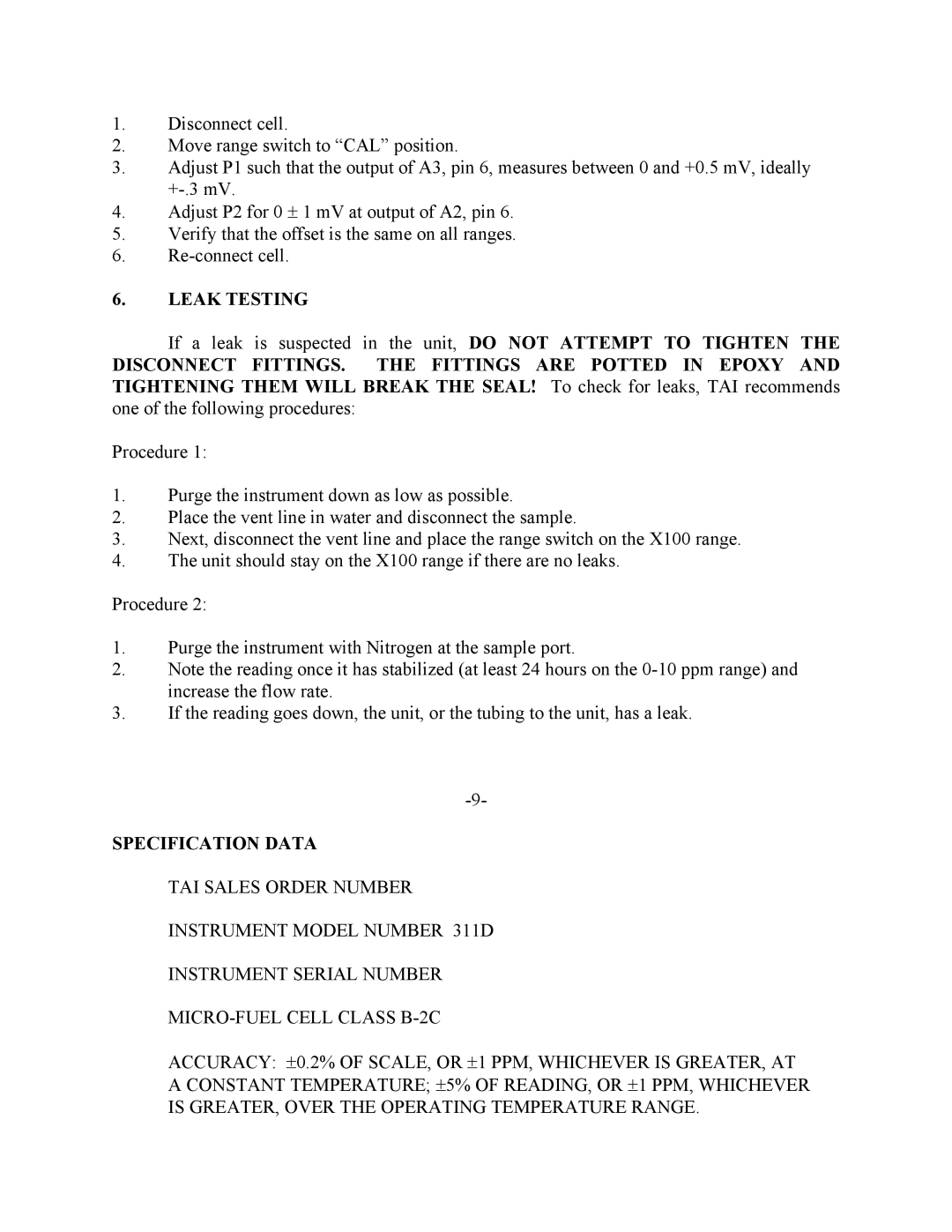1.Disconnect cell.
2.Move range switch to “CAL” position.
3.Adjust P1 such that the output of A3, pin 6, measures between 0 and +0.5 mV, ideally
4.Adjust P2 for 0 ± 1 mV at output of A2, pin 6.
5.Verify that the offset is the same on all ranges.
6.
6.LEAK TESTING
If a leak is suspected in the unit, DO NOT ATTEMPT TO TIGHTEN THE
DISCONNECT FITTINGS. THE FITTINGS ARE POTTED IN EPOXY AND TIGHTENING THEM WILL BREAK THE SEAL! To check for leaks, TAI recommends one of the following procedures:
Procedure 1:
1.Purge the instrument down as low as possible.
2.Place the vent line in water and disconnect the sample.
3.Next, disconnect the vent line and place the range switch on the X100 range.
4.The unit should stay on the X100 range if there are no leaks.
Procedure 2:
1.Purge the instrument with Nitrogen at the sample port.
2.Note the reading once it has stabilized (at least 24 hours on the
3.If the reading goes down, the unit, or the tubing to the unit, has a leak.
SPECIFICATION DATA
TAI SALES ORDER NUMBER
INSTRUMENT MODEL NUMBER 311D
INSTRUMENT SERIAL NUMBER
ACCURACY: ±0.2% OF SCALE, OR ±1 PPM, WHICHEVER IS GREATER, AT
ACONSTANT TEMPERATURE; ±5% OF READING, OR ±1 PPM, WHICHEVER IS GREATER, OVER THE OPERATING TEMPERATURE RANGE.
